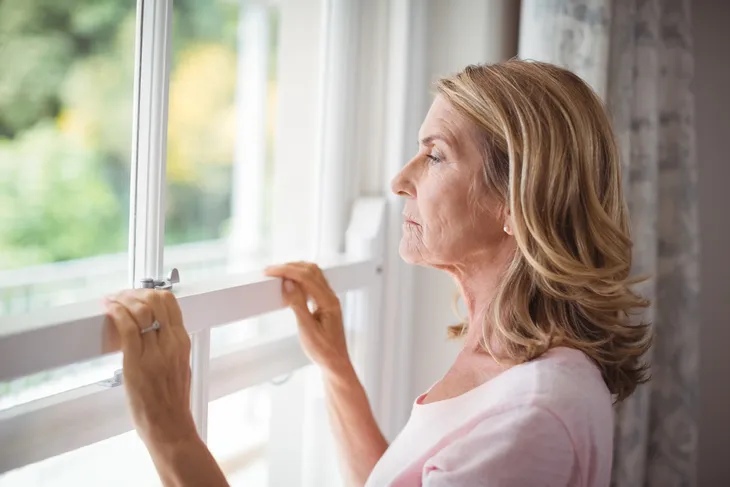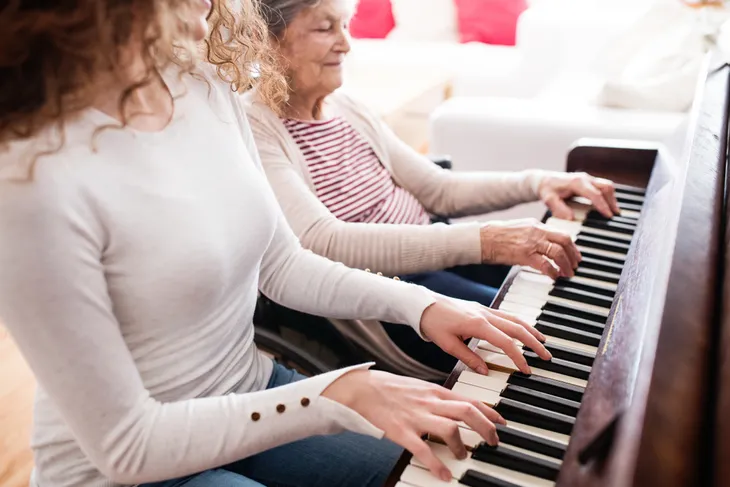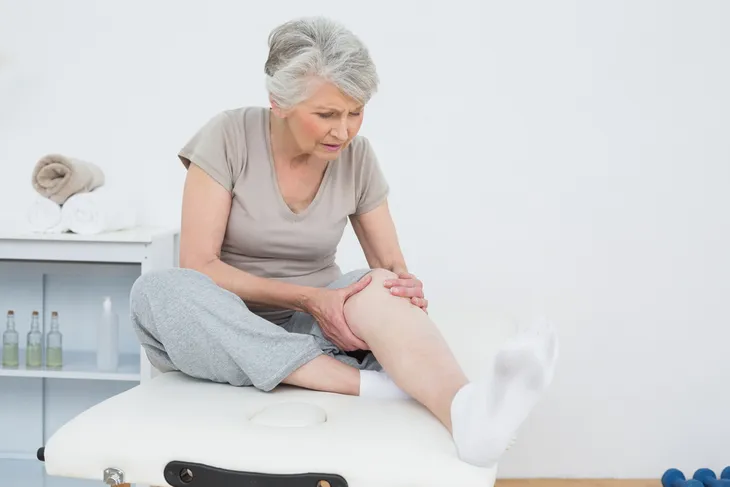Aging is a natural process that we can’t escape. Some embrace it while others fear it, but some of that fear is based on common misconceptions. If you think things like depression, dementia, and weight gain are all unavoidable parts of aging, think again. Many of the things people fear about getting older aren’t actually true.
Disproving common myths about aging is so important because it can change the way we view growing older and it can also change the way others act towards seniors. Follow along as we debunk 10 common myths about aging.
Myth: Older Adults Need Less Sleep
Regardless of your age, everyone needs a good night’s rest. That said, younger children do need more sleep than adults but many people think older adults, particularly seniors, need less sleep than younger adults. This common myth is actually not true.
Both younger and older adults need about 7 to 9-hours of sleep per night. However, as you age you may find it harder to fall asleep and stay asleep. Some of this can be due to the side effects of certain types of medications or a medical condition but poor sleep is not a normal part of aging. Be sure to seek your medical professional if you’re having trouble sleeping.
Myth: Depression Is A Normal Part Of Aging
Depression may be common in older adults but it certainly is not a normal part of aging. It’s important to understand depression is not just feeling low or sad, it’s a real and treatable medical condition. That said, older adults may have an increased risk of having depression. This may be due to the fact that about 80-percent of older adults have at least one chronic health condition and depression is more common in people who have illnesses.
It’s also worth noting that some older adults can go misdiagnosed or under-treated because their symptoms of depression may be mistaken for a reaction to changes in their life. If you are ever concerned about a loved one it would be best to encourage them to seek help from their medical professional to be properly diagnosed and then treated.
Myth: It’s Too Late For Older Adults to Quit Smoking
This myth couldn’t be further from the truth! It is never too late to quit smoking. In fact, quitting at any time will almost immediately benefit you. For starters, in the first few hours, the carbon monoxide levels in your blood will begin to decline. Second, in a few weeks, your blood circulation will improve, and your lung function will increase. Not only will you add years to life by quitting but you will be able to breathe easier and you’ll have more energy.
Furthermore, when you smoke your heart rate and blood pressure rises but when you quit, your heart rate and blood pressure will lower over time. In addition to these benefits, quitting smoking will also decrease your risk of heart attacks, stroke, lung disease, and cancer. Not to mention, curbing the cigarettes will also reduce your family’s exposure to second-hand smoke.
Myth: Older Adults Can’t Avoid Dementia
Your risk of dementia does grow as you get older but it is not a normal part of aging. About 40-percent of people over the age of 65 will experience some form of memory loss. That said, age-associated memory impairment is far different from diseases like Alzheimer’s and other dementias, and understanding the difference is important.
Age-associated memory impairment includes things like forgetting the name of an acquaintance or occasionally forgetting about events. Whereas signs of dementia include symptoms like not being able to remember recent conversations, frequently forgetting things and events, and not recognizing friends and family members. If you think you have age-associated memory impairment here are some great ways you can manage:
- Keep a detailed calendar or planner
- Keep a routine
- Put items in the same spot such as keys and phone
- Repeat information
- Keep your mind active
- Get a good night’s rest
Myth: Exercise Is Unsafe For Older Adults
A common myth is that exercise is unsafe for older adults as some fear they will fall and hurt themselves. In fact, only one out of four people between the ages of 65 and 74 exercise regularly. This myth is of course not true. Studies show that regular exercise will actually reduce your chances of falling. This is because exercise will help build your strength and balance. A great low-impact exercise is tai chi which will not only help you stay active but will help you improve your balance.
Further, exercise can help you prevent bone loss, improve your coordination, and make you stronger overall. In addition to physical gain, exercise will also benefit you mentally. You may notice a boost in your memory and your mood.
Myth: Older Adults Are All Bad Drivers And Should Give Up Driving
This myth is certainly not true, not all older adults are bad drivers. Sure, some people face challenges as they age when joints become stiff and reflexes aren’t what they used to be but this doesn’t happen to everyone, at least not right away. The question shouldn’t be what age should someone give up driving, but rather when does one’s abilities prevent them from driving safely.
There are some great practices you can take to ensure you’re fit to drive safely as you age. These include getting your eyes and hearing checked annually, speaking to your doctor about how your medications and ailments (if you have any) can impact your driving, and be sure to get plenty of rest to ensure you’re always alert when driving.
In addition to these tips, staying active by exercising regularly can help maintain your strength and flexibility all of which will contribute to driving safely. Finally, it would also be a good idea to drive a car with an automatic transmission, power brakes, power steering, and larger mirrors.
Myth: You Can’t Avoid Weight Gain
It is true that your metabolism will slow down as you age which means your body will burn fewer calories at a slower rate than you used to but weight gain isn’t unavoidable altogether. The most important thing to remember is it’s all about adjusting your habits.
Some great ways to maintain a healthy weight as you age is to adjust your calorie intake. A moderately active 65-year-old woman will need about 1,800 calories while a male of the same age and activity level will need about 2,400 calories.
Along with diet, staying active is important too. You should try to aim for about 150-minutes of moderate-intensity activity as well as two muscle-strengthening activities each week. Some great ideas include going for a walk or gardening. In addition to your diet and physical activity, you should also keep your stress levels in check. Stress is not only bad for your mental health but can lead to weight gain. You can avoid stress by engaging in relaxing activities such as yoga or meditation.
Myth: Older Adults Can’t Learn New Things
A common misconception is that older adults can’t learn new skills. This is not true at all. Older adults certainly have the ability to learn new things and can improve their current skills too. Aging may come with challenges like age-associated memory impairment but that shouldn’t stop you from trying something new!
Learning new skills will keep your brain active and may even improve cognitive abilities. One study even found that older adults who learned quilting or photography demonstrated improved memory. So go ahead and take advantage of your golden years and use your time to have fun and learn something new!
Myth: Osteoporosis Only Affects Older Women
It’s a common misconception that osteoporosis only affects women. The reason women are more susceptible to osteoporosis is that a woman’s estrogen levels drop after menopause which speeds up bone loss. While it may be more common in women, it can still affect many men, and some cases could even be under diagnosed.
Dr. Eric Orwoll, a physician-researcher who studies osteoporosis at Oregon Health and Science University says, “A third of all hip fractures occur in men, yet the problem of osteoporosis in men is frequently downplayed or ignored,” Many of the things that put women at risk for osteoporosis is the same for men, such as family history, not enough exercise, smoking, not enough calcium and vitamin D, and more. Check out these lifestyle tips to manage and prevent osteoporosis!
Myth: Older Adults Don’t Need Close Relationships
Another common misconception is that older adults don’t want or need close relationships and this can’t be further from the truth. We are all social beings whether you consider yourself an introvert or extrovert. Social relationships help older adults (and all individuals really) express their feelings, and keeps the brain mentally sharp. Not having social relationships can lead to isolation and in some cases even depression.
Meeting new people is never easy at any age but it is important. You can meet people by taking cooking classes, tai chi classes, you can invite a neighbor for dinner, reconnect with old friends by learning how to use social media, and if you’re retired you can try taking on a part-time job or volunteer in your community to meet new people.













